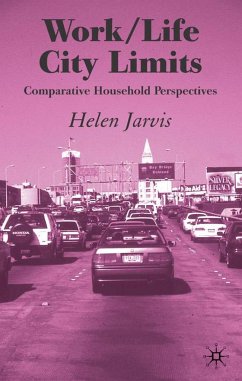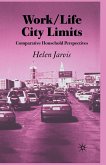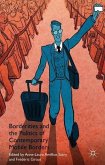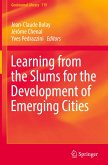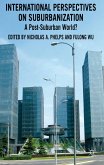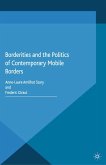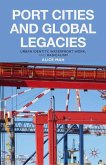This book demonstrates how local contexts of urbanization and cultures of work are intimately meshed together. Each chapter explores a discrete dimension of the way people organize their working lives in post-industrial cities, taking close account of the social and environmental impact of this balancing act. The book features cross-national and inter-city comparative household level research, highlighting significant contradictions underpinning the nature of production, consumer expectation, work-life balance and urban environmental quality.
'Drawing on absorbing personal testimonies as well as incisive analyses of city form, labour market change, new urban policies for sustainability and the differential impact of economic liberalism in two societies, Jarvis weaves a spell-binding story...This book is an important addition to the expanding interdisciplinary field connecting the worlds of employment and home life.' - Linda McDowell, Professor of Human Geography, University of Oxford, UK
'Jarvis provides an engaging and erudite account that both unpicks and weaves together the connections between housing, paid and unpaid work, transportation, policies and provisions for working families, and environmental consequences in cities on both sides of the Atlantic...This book provides an exemplary contribution to international comparative urban research.' - Kim England, Professor of Geography, University of Washington, USA
'This is a book that deserves to be read not only as an account of the intersections between what used to be separate spheres, but also as an account of how individual households are shaping contemporary cities as much as they are being shaped by the structures of urban life.' - Tim Butler, Urban Studies
'Jarvis provides an engaging and erudite account that both unpicks and weaves together the connections between housing, paid and unpaid work, transportation, policies and provisions for working families, and environmental consequences in cities on both sides of the Atlantic...This book provides an exemplary contribution to international comparative urban research.' - Kim England, Professor of Geography, University of Washington, USA
'This is a book that deserves to be read not only as an account of the intersections between what used to be separate spheres, but also as an account of how individual households are shaping contemporary cities as much as they are being shaped by the structures of urban life.' - Tim Butler, Urban Studies

